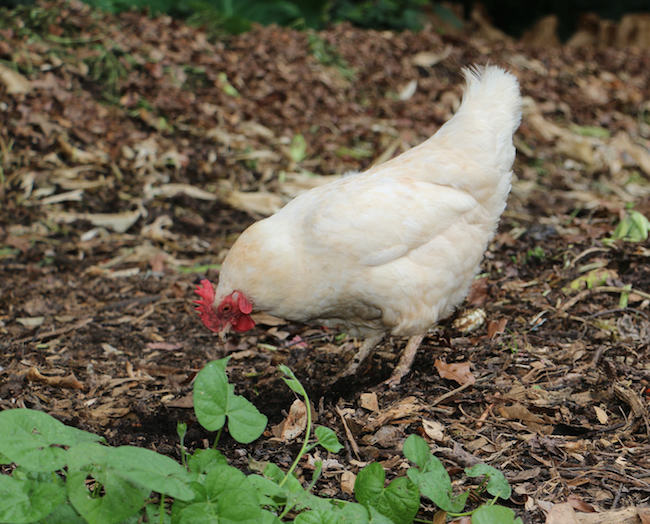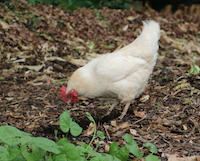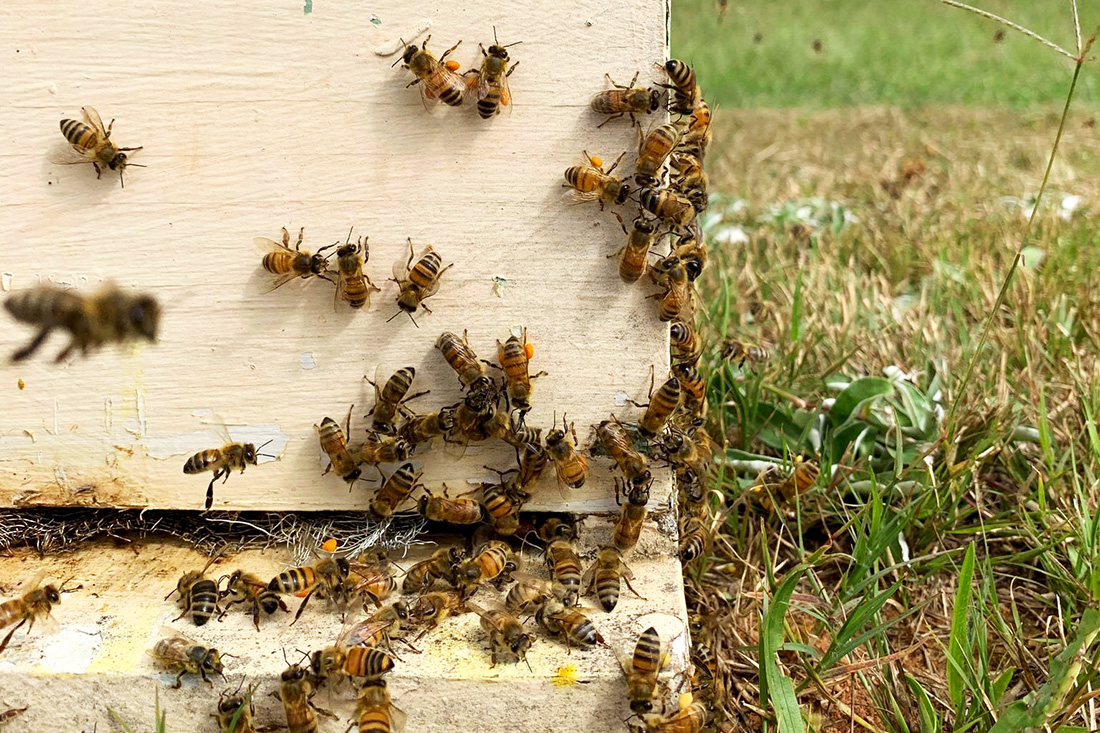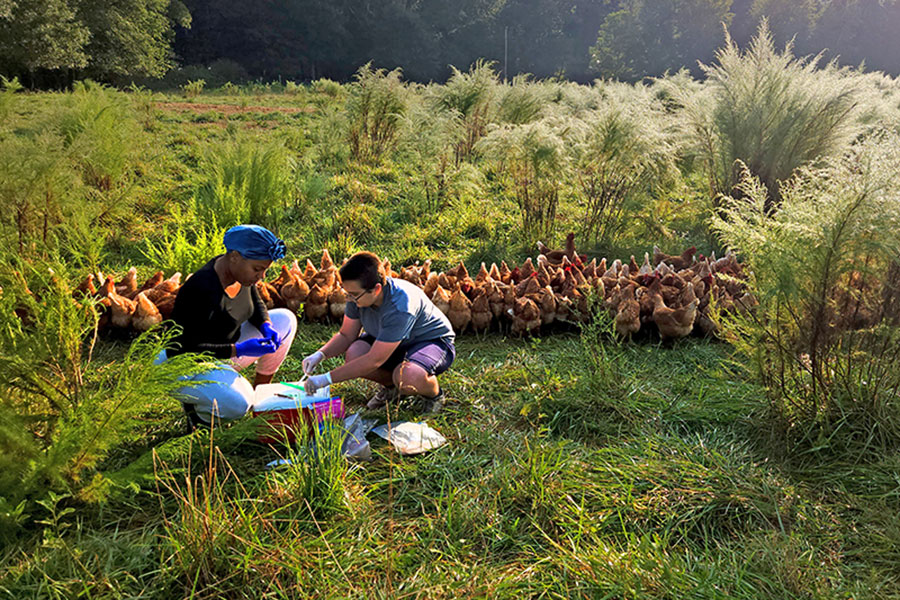Avian influenza is not a problem in Georgia, yet. Commercial chicken producers are prepared to fight the virus that kills birds, and backyard chicken flock owners should prepare, too.
While the commercial poultry industry in Georgia has the greatest risk in terms of potential for loss, it also has multiple safeguards in place and has limited exposure to migratory birds. Avian flu can more easily be introduced into Georgia through backyard chicken flocks.
There have been no cases of human infection by birds because the H5N2 strain of the virus is not zoonotic, meaning it cannot pass between humans and animals.
To protect backyard chickens, University of Georgia Cooperative Extension offers small flock owners these recommendations.
Keep Your Distance
- Restrict access to your property and your birds.
- Consider placing the birds inside a fence, and only allow those who care for the birds to come in contact with them.
- If visitors have backyard chickens of their own, do not let them come in contact with your birds.
- Game birds and migratory waterfowl should not have contact with your flock.
- Keep chickens inside a pen or coop, and do not let them run free.
Keep Clean
- Wear clean clothes when coming in contact with your birds; scrub your shoes with disinfectant.
- Wash your hands thoroughly before entering the chickens’ pen.
- Clean cages, and change food daily.
- Keep stored feed in enclosed containers and protected from wild birds and vermin.
- Clean and disinfect equipment that comes in contact with your birds or their droppings, including cages and tools.
- Remove manure before disinfecting.
- Properly dispose of dead birds.
- Use municipal water as a drinking source instead of giving chickens access to ponds or streams. (The avian influenza virus can live for long periods on surface waters.)
Don’t Bring Disease Home
- If you have been near other birds or bird owners, at a feed store or bird hunting, for instance, clean and disinfect your vehicle’s tires and your equipment before going home. Shower and put on clean clothing before approaching your flock.
- Keep any new birds or birds that have been off-site separate from your flock for at least 30 days.
Don’t Borrow the Virus
- Do not share tools, equipment or supplies with other bird owners.
- If you do bring borrowed items home, clean and disinfect them before you bring them home.
Know the Signs of a Sick Bird:
- A sudden increase in deaths, a clear-sign of the N5N2 strain of the virus
- A drop in egg production, or eggs that are soft, thin-shelled or misshapen
- A lack of energy or poor appetite
- Watery and green diarrhea
- Purple discoloration of the wattles, combs and legs
- Swelling around the eyes
- Nasal discharge
Early detection is critical to prevent the spread of avian influenza. If you suspect your flock is infected, call the Georgia Poultry Laboratory Network at (770) 766-6810.
For more information on avian influenza, call the Georgia Department of Agriculture at (404) 656-3667. To learn more about how to care for backyard flocks, see the UGA Extension publications on the topic at extension.uga.edu/publications.








